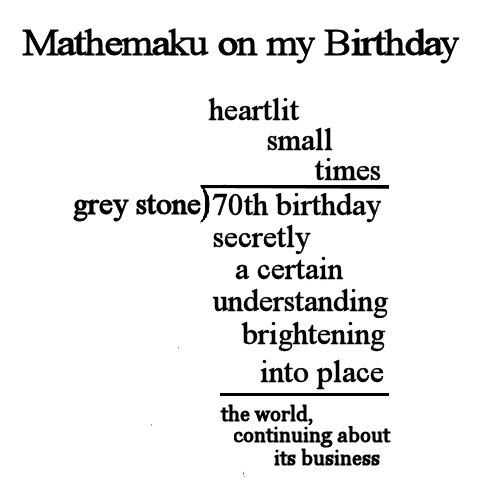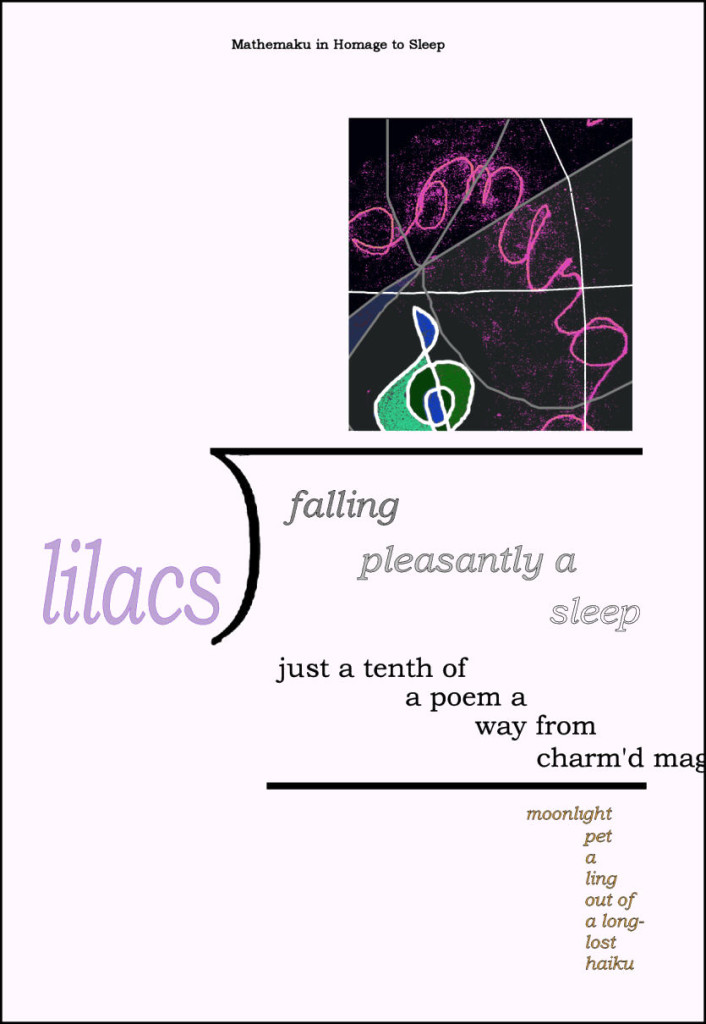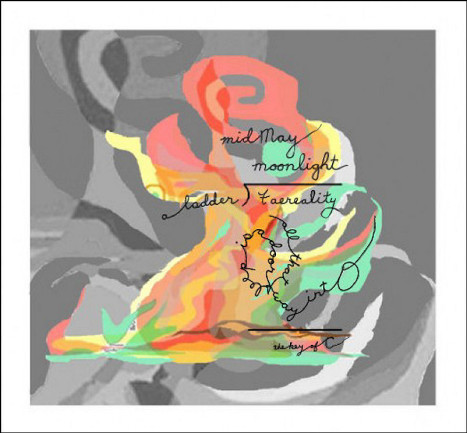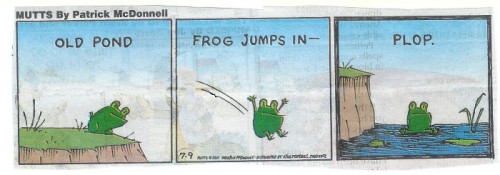A week or so ago, I read an article in Discover about the shrinkage of the human brain over the past 20,000 or more years. Well-written, fairly interesting piece thought didn’t go very deep because only certified authorities were consulted for explanations as to what was behind the shrinkage. I was provoked enough to scribble a list of eight possible reasons for the shrinkage, planning an essay on the subject, for the heck of it mainly, but also to send to the author of the Discover article in hopes she might find it interesting, and perhaps do another article on the subject for some other magazine, and this time mention me. Or think enough of what I wrote to get my views when doing another article on the brain. Yeah, more delusional day- dreaming on my part. But just to write an essay on the shrinkage seemed to me a good idea. Another achievement, if I finished it, and a chance to clarify my thinking about my knowlecular psychology, too. Also perhaps enough fun to break me out of the dry spell I’ve been going through as a writer.
This it did, for a day, for I wrote 1150 words the day I wrote the above. After that, I wrote a few hundred words about it daily for a few days, then missed a day. That was okay with me because the reason I slowed down, then wrote nothing was that I thought I needed to back way up and explain intelligence, starting with its evolution. A tough job even if I could remember as much of my theory as I needed to.
After a day or two of inactivity, I managed a few words a day four a couple of days. They were of much value but they did start awakening my understanding of my theory. Eventually, I got the beginnings of my take on the beginnings of intelligence, if by intelligence we mean “choice of behavior” as opposed to random activity.
Let’s begin with the first living cell, a protozoan.” It moves randomly through water. Eventually it accidently acquires a sensitivity to light, let’s say, although it could be salt denisity or temperature, it doesn’t matter. So, it has the prototype of a nervous system, a single sensor sensitive to light. The next consequential accident will be its evolving a component that makes it move in some direction as opposed to being moved by environmental forces. Call it an “effector.” It may evolve this before it evolves a sensor, it doesn’t matter, What matters is that eventually many protoazoa will have non-functioning but not seriously biologically disadvantageous nervous-systems. They’ll be superior (no quotation marks: they will have the potential for intelligence other protozoa lack, so will be superior to them, if not to invincibly egalitarians halfwits, whom I’m insulting here in the hopes they go away and I won’t have to hear the nonsense I eventually would if they didn’t). Ergo, I will call them “alphzoa.”
The first key accident leading to intelligence will be an alphazoan’s forming a linkage forming its light-sensor and effector, allowing the former to activate the latter.
If the effector causes movement toward light, and light is beneficial–as perhaps a source of energy–alpazoa with this capacity will soon become dominant. Alphazoa which light causes to move away from light will die out. Or perhaps evolve differently, finding something in darkness that makes up for lack of light–concealment from prey, maybe. In any case, a functional, useful nervous system will have come into being, or what I’d call simple reflexive intelligence. The march to Us hath commenced. Eventually some sensor will evolve that is sensitive to the color, say, of one of the alphazoan’s prey and links with an effector causing the alphzoa to move toward the prey, a “toward-effector.” Ditto, a reflex with an “away-from effector” attached to a sensor sensitive to the color or some other characteristic of some kind of predator on the alphazoan. Not a technical advance, but certainly a big jump in improving the alphazoa’s biological fitness.
At the same tiime, alphazoas will naturally be increasing their numbers of such reflex pairs. Eventually, there’d have to be a sizable group of alphazoa with several effective reflex pairs, to significantly improve their chances of those pairs lucking into new combinations of high importance. A good example would come about when an organism preying on the alphazoa evolved the same coloring as the alphazoa’s prey. Misfits without the toward-gray reflex would suddenly have an advantage on those with it. Some such misfits would develop withdraw-from-gray reflex pairs. Eventually some of them would also develop a sensor sensitive to something the prey had that the predator did not have but the gray prey did, smell A, say, and connect it to the move-toward effector.
Conditions would then be right for the next essential evolutionary step toward full intelligence. Alphazoa would exist, each of which has an away-from-grey reflex and a toward-smell A reflex. So they would flee from gray cells without smell A–but both flee from and go after gray cells with smell A. Safety, but no meal unless the prey swam into them. This problem (or one like it) would be crucial in making conditions right for the advent of a rudimentary form of “choice,” however.
I’m sure messy partial solutions would come about and probably clever mechanisms different from the one I think may have carried the day. But something along the lines of the solution I’m about to propose had to have occurred. It would depend on the evolution of inhibitors–and we know inhibition has a major role in the nervous system.
An inhibitor is device which prevents any effector it is connected to from acting just the way a sensor causes the activation of any effector it is connected to, Like everything else, it would pop up by chance but persist when it happened, say, to be connected to a smell-A sensor and inhibited an away-from effector. Ergo, the alphazoa blessed with such an inhibitor would flee a gray cell which lacked smell A, but go after such a cell if it had smell A, because it sinhibitor would prevent the away-from effector from preventing it from doing that.
So, life will now have achieved the ability to choose between advancing or withdrawing in the direction of a gray cell. It will still be a very primitive computer, but with something like intelligence, anyway.
*** That’s as far as my coherent writing got. Extremely difficult to write although what I said could probably not be more simple and unoriginal.




this has been up for several days on Issa’s Untidy Hut
I am fairly certain it is Watt’s translation of The Frog Poem
which I came away with:
so many frogs
in one pond
croaking
Now make it into a comic strip, Ed!
Thanks for continuing to visit–and for your previous good wishes. I continue to improve–but now my lawn mower won’t work! I should make a haiku about that but won’t.
I got one if I can find your email address will send it to you
meanwhile I just sit out on my huge back deck
&watch the weeds grow and my push-mower rusting.
old push mower
rusting
among the weeds
I wonder how a comic strip like “Mutts” survives. This particular strip is actually funny, while most are not. I think it gets by on appealing to sentimental pet lovers, who just want cute dog and cat pictures, and maybe some on the the strength of its draftsmanship (though this strip is rather weak in that department, and maybe the coloring doesn’t help). And what’sh the deal with that shpeech impediment? Yeesh. Maybe it one all cats have when they learn to talk. On the other hand, i think the artist is a Buddhist, given some of the stuff he quotes in his strips, so he gets some diversity points.
Anyway, here’s my response to that pond/frog poem, in the form of a hay(na)ku, which you can imagine William S. Burroughs reading:
the old pond,
a frog
croaks.
endwar
I think the drawing of Mutts is superior, intentionally reminiscent of Popeye, just right for its kind of comic strip. Much of the humor is simple enough–many puns, for example. Otherwise, I go along with your impressions.
Poop on your debasement of the old pond haiku. Some pipple got no respeck.